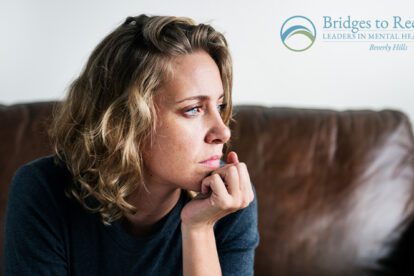When Depression Keeps Coming Back: Treatment Options When Nothing Seems to Work

When your depression doesn’t respond to treatment, it can be discouraging, to say the least. It could be due to a number of reasons, including misdiagnosis and inconsistency in treatment. To combat your symptoms, you may choose to switch or combine new medications, or you may want to experiment with integrative therapies in addition to your meds. Lifestyle changes can also sincerely benefit your chances of achieving recovery and leaving treatment-resistant depression behind you.
You’ve gone through the trouble of seeing a succession of different doctors. You’ve tried talk therapy, you’ve researched holistic home remedies, and you’ve finally gotten your hands on an SSRI that’s supposed to work. You take your meds…but nothing seems to be changing. You feel stuck, and just as hopeless as before.
As hard as these setbacks can be, you need to know that you’re not alone. It’s normal to not see results from your first (or second) treatment trial for Major Depressive Disorder—in fact, it would be rarer if your medicine worked perfectly the first time. However common, depression that doesn’t respond to treatment is incredibly difficult to live with.
How Treatment-Resistant Depression Appears
Those who suffer from Major Depression tend to only think of one thing: relief. However, relief from depression is actually difficult to define in medical terms. If your treatment goal is “remission”—a full recovery back to your “normal self,” if such existed—that’s a very different measuring stick than “response to treatment,” where partial improvements are valid. While you undeniably long for full remission, it may be more practical to seek a higher level of response to treatment instead. Things may not appear to be 100% better, and while your mental health team aims for a full recovery for you, even a little bit of success is still success.
That’s why it’s incredibly important to stick with your treatment plan. “Non-adherence” is labeled as one of the main contributing factors to treatment-resistant depression (TRD)—whether that means not taking your meds regularly or not attending regularly scheduled integrative therapies. Give yourself the best chance possible, and be sure to stick with the plan. Some medications can take up to 12 weeks to show symptomatic results. Don’t give up just yet!
Of course, there’s no need to “tough it out” if your medication comes with severe side effects that you can’t live with. There’s a good chance the medicine is not working for you—and it’s not likely that you’ll want to continue it long enough to achieve recovery for your other symptoms. Contact your doctor immediately if this occurs. They will be able to help you find a medication that eases your depression while still allowing you to live a joyful and active life.
It’s also increasingly possible with each failed course of medication that you may have a misdiagnosis on your hands. Patients diagnosed with TRD often end up re-diagnosed with Bipolar Disorder, which doesn’t respond as well to antidepressants. A myriad of other co-occurring disorders (including substance abuse) might be contributing to your lingering symptoms, so your best bet is to see a qualified psychologist. A comprehensive diagnosis that takes your history into account and includes exhaustive diagnostic assessments will be beneficial for giving a full picture of your mental health.
Try a New Prescription Regimen With Your Doctor’s Help
Not all SSRIs are equal, and not all of them will work for you. That’s a frustrating reality. It’s not uncommon for depression patients to see three or four different medication “cocktails” before they find one that manages all of their symptoms.
With depression, doctors frequently try switching patients to different SSRIs (including Prozac/Zoloft) to see if changes occur. Different classes of depression medication also exist, including SNRIs, atypical antipsychotics, tricyclic medications, and MAO inhibitors. Sometimes, switching to a different class of medication altogether can provide very different results. Although the technical assumption for a resistant depression is one that shows little response to two medicine trial courses, in reality, there are so many different other medication options to try that might bring significant relief.
Another pharmacological strategy your doctor might pursue is combining various medications. It’s common to combine SSRIs like Wellbutrin with Prozac in order to manage more symptoms. Sometimes, treating unresponsive depression with the addition of a medication that is usually for another unrelated disorder (such as Lithium or thyroidal hormones) may provide the right combination. That’s why mental health medication is often referred to as a “cocktail”—perfected amounts of a few ingredients, specific to each person, are combined to produce a good result.
Treatment Options Exist Outside the Pharmacy
While most depression patients respond best with a combination of pharmaceutical and talk therapies, there are also plenty of other options available for you if your depression seems to be resistant to treatment. Exploring these options in addition to appropriate medication may be the next step for you.
Significant research has found that holistic therapies can have a positive effect on mental health, and depression specifically. Mindfulness practices including yoga and meditation can be incredibly helpful for those whose depression comes with anxiety symptoms. Techniques such as acupuncture and massage have shown significant benefits by bringing your attention back to your body and the present moment. These therapies provide an important counterpoint to other cognitive therapies and medication.
It may also be interesting to experiment with different talk therapy methods to see which helps you respond the best. If general “counseling” didn’t seem to help very much, you may find success with Cognitive Behavioral Therapy (CBT), which is more practical and in-depth. You may also consider trying Mindfulness-Based Cognitive Therapy (MBCT)—which sounds similar, but has a different general effect. Techniques such as Eye Movement Desensitization Reprocessing (EMDR) and Dialectical Behavior Therapy (DBT) can also prove to be very helpful in treating depression. These methods can be combined or used in alternation to provide compounded results.
Explore Lifestyle Changes that Might Make All the Difference
“Natural” treatments for depression seem to go in and out of fashion with the seasons. By themselves, these practices may not be especially effective against a full-blown disorder, but they can do wonders in combination with other treatment options. Some lifestyle changes have been scientifically proven to increase your chances of achieving remission—these are the ones you’ll want to focus on.
The first: getting good sleep. Most likely, you simply are not giving your body enough mental and physical rest. Your body heals best when asleep, so give yourself the best chance possible. Treat any sources of insomnia with your doctor as well as you can, and make sleep a priority.
This next strategy might make you roll your eyes, but it’s definitely worth your attention if you haven’t experimented with it already. Exercise. A steady, vigorous form of daily exercise has been proven to have incredible mental health benefits. Some psychiatry clinics today even proclaim to prescribe exercise as the number one medication to all of their depression patients. Clearly, something’s working there. Give it a try—if nothing else, the daily endorphin boost may give you a much-needed pick-me-up in the moment.
Is Someone You Love Suffering From Depression?
Bridges to Recovery is a Safe Alternative to a Hospital Environment
Treatment-Resistant Depression Can be a Temporary Season In Your Life
There truly are so many ways to treat Major Depressive Disorder. It could take a lifetime to experiment with them all. That means there’s hope—if a treatment you’ve tried didn’t work for you, there are many others to attempt.
The truth is, up to 30% of people with depression do not immediately find treatment that brings them to remission. If you’ve tried all of the above strategies and are wracking your brain to decide where to go next, we may have another solution for you. A compassionate, holistic, full-time program (for a brief period of time) might be just what your brain needs to recover.
At Bridges to Recovery, we combine psychiatry, psychotherapy, and integrative therapy to give each of our patients a customized care plan specific to their needs. Our beautiful residences in Los Angeles, CA provide a welcome alternative from a hospital setting, with all the advanced care you require. If you’re at the end of your rope with depression treatment, you may want to consider giving residential mental health care a chance. You never know—this could be the last treatment experience you need to achieve recovery.
Bridges to Recovery provides holistic residential mental health care for individuals who struggle with even the most difficult disorders—including treatment-resistant depression. Reach out to us today to learn more about how we might work together to help you achieve remission.
Lead Image Source: Unsplash User Sandis Helvigs






